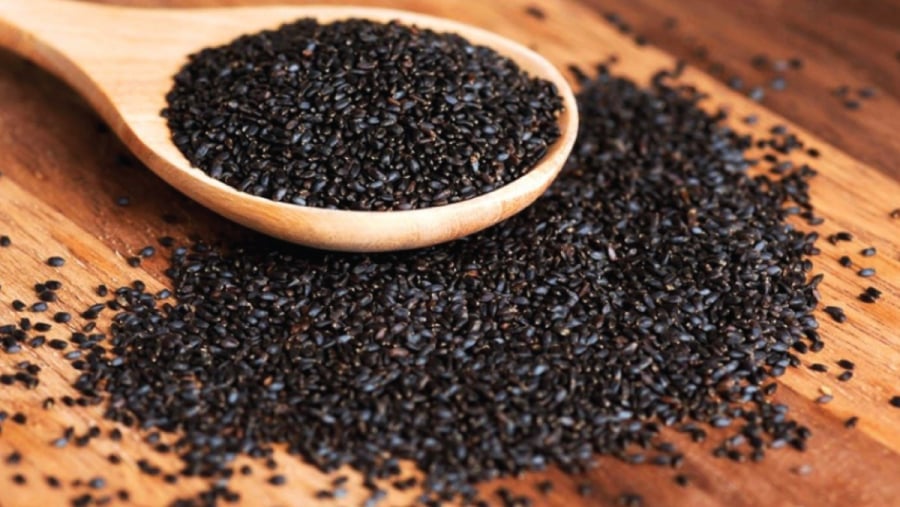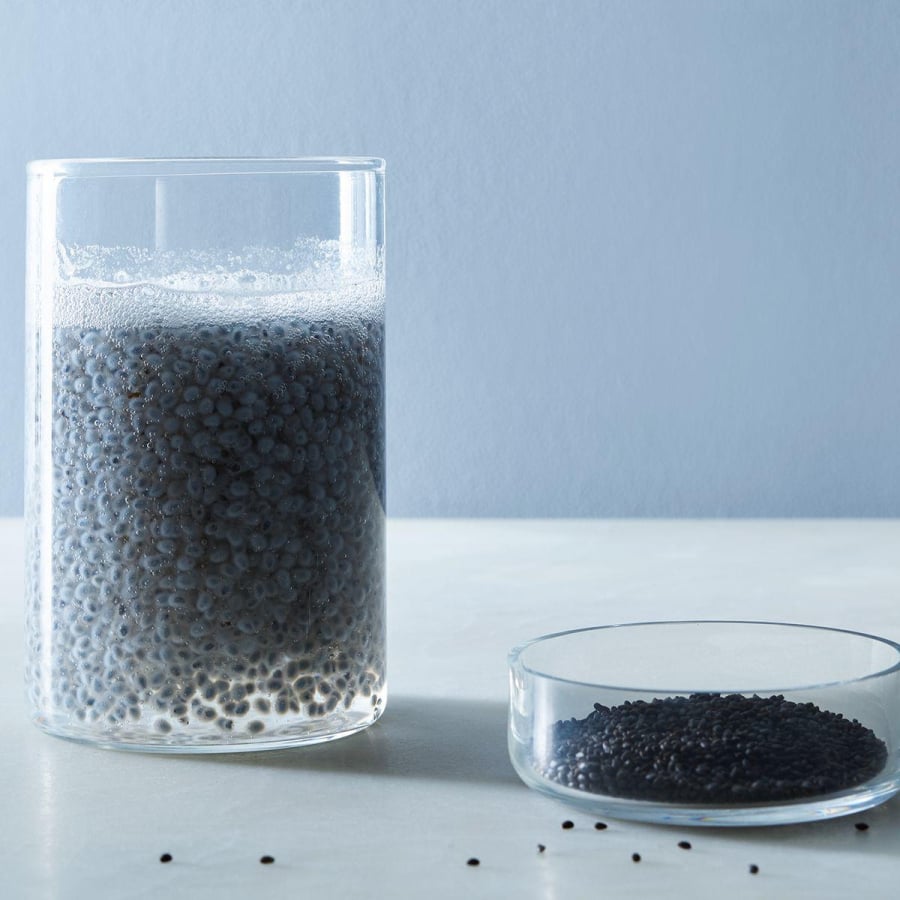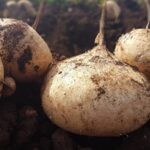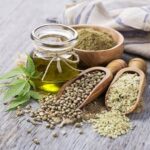Can Diabetics Eat Basil Seeds?
Basil seeds, small in size and resembling sesame seeds, are black and a rich source of soluble fiber with cooling properties. When exposed to water, the mucilage surrounding the seeds swells and bursts, releasing the fiber and causing the seeds to double or triple in size.
Basil seeds have been widely used in traditional medicine in China and India. In recent years, they have also gained popularity in Vietnamese cuisine.
Research indicates that 100g of basil seeds contain a high protein content ranging from 11.4 to 22.5g, fiber from 7.11 to 26.2g, and lipids predominantly composed of linoleic acid (12–85.6g/100g) and linolenic acid (0.3–75g/100g). Basil seeds also provide a significant amount of minerals such as calcium, potassium, and magnesium, along with phenolic compounds and trace minerals like iron, zinc, sodium, and manganese.

Basil Seeds in Traditional Medicine
Widely Used in China and India
Research on the Impact of Basil Seeds on Diabetes
A 2016 study suggested that water extract of basil seeds could be an effective treatment for diabetic rats, helping reduce both body weight and blood glucose levels.
However, there are currently no specific guidelines on the amount of basil seeds diabetics should consume. According to another study, when individuals with type 2 diabetes consumed 10 grams (approximately 3/4 of a tablespoon) of basil seeds mixed with water after each meal for a month, they exhibited lower post-meal blood glucose levels compared to their baseline readings.

2016 Study: Water Extract of Basil Seeds
Showed Positive Effects on Diabetic Rats
Surprising Benefits of Basil Seeds for Diabetics
Helps Manage Blood Sugar Levels
Basil seeds play a crucial role in stabilizing blood sugar for individuals with type 1 and type 2 diabetes. Due to their high fiber content, consuming basil seeds before meals can prevent spikes in blood glucose. This is achieved by slowing down carbohydrate metabolism and absorption in the intestines, thereby supporting more effective blood sugar control.
Aids in Weight Loss
The fiber in basil seeds can be beneficial for those aiming to maintain or lose weight. Consuming basil seeds prolongs the feeling of fullness after meals, reducing appetite. Obesity is a leading risk factor for type 2 diabetes, so weight management is an essential aspect of treating this condition. Losing weight not only improves overall health but also encourages a positive lifestyle change for those with type 2 diabetes.
Supports Anti-Inflammatory Action
Diabetes can weaken the immune system, making the body susceptible to bacterial attacks and slowing wound healing. Basil seeds are rich in phenolic compounds and flavonoids, known for their antioxidant properties. These antioxidants play a vital role in neutralizing free radicals that can cause cellular damage. Thus, basil seeds may enhance immunity, helping the body fight infections and prevent cell degeneration.
Helps Prevent Cardiovascular Complications
Cardiovascular complications are among the most serious risks for diabetics. The pectin in basil seeds can reduce blood cholesterol by inhibiting its absorption from the intestines. This not only stabilizes lipid levels in the blood but also minimizes excess cholesterol, contributing to the prevention of cardiovascular diseases and related complications in diabetic patients.

Pectin in Basil Seeds Helps
Reduce Blood Cholesterol
Precautions When Using Basil Seeds for Diabetes Treatment
Although basil seeds offer numerous benefits, diabetic patients should consume only 5 to 10 grams per day, along with an adequate amount of water. Due to their strong water-absorbing capacity, insufficient water intake can lead to the risk of intestinal obstruction.
The fiber in basil seeds may interfere with the absorption of medications in the body. Therefore, individuals taking prescription drugs should consume basil seeds at least one hour before or after taking their medication to ensure treatment efficacy.
Basil seeds should be considered a dietary supplement and not a substitute for medical treatment. Diabetic patients should consult their doctors before incorporating basil seeds into their diets to receive appropriate guidance and ensure the best outcomes.



































